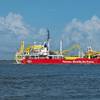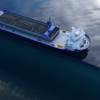Jamaica is seeking investors for its oil and gas exploration and has planned a second round of roadshows overseas to market the country's oil and gas exploration potential in January, according to a report on www.jamaicaobserver.com.
This will be the second overseas marketing initiative of the Government, and will be conducted under the auspices of the state-owned energy company, the Petroleum Corporation of Jamaica (PCJ). In this round, the PCJ hopes to sell exploration licenses for the remaining 13 of 20 oil exploration blocks that make up Jamaica's prospectable area.
At these roadshows, investors are introduced to information about Jamaica's oil and gas potential, and have the option of furthering their research by purchasing data packs that contain almost a century's worth of information about the island's onshore and offshore geology collected by the PCJ.
The first set of roadshows, done in 2004 and also held in Houston and London, resulted in eight companies buying Jamaica's $50,000 data packet. Three of those participated in the bidding round for exploration blocks, and two - Finder Exploration PTY of Australia and Rainville Limited of Canada - eventually acquired licences to explore seven of the island's 20 blocks.
Under the terms of those exploration agreements, the private companies are required to foot the entire exploration bill, post a security bond, make a deposit to a Stability Fund and contribute $100,000 to Jamaica's Petroleum Training and Education Fund (PetroFund).
If fossil fuel deposits are discovered, the oil companies responsible for extracting those resources are required to pay a 12.5 per cent royalty in cash or product to the Jamaican Government before they begin to sell cost petroleum, in order to recover their investment. Once the companies have recovered their costs, any profit oil is to be split with the PCJ, according to a scale that considers issues such as water depth and yield amounts.
Finder, which initially was awarded blocks 7, 10, 11 and 12, in February this year, contracted Fugro to collect close to 8,000 km of 2D line data from the blocks, which lie offshore of Jamaica's south coast. Finder later formed a joint venture partnership with Australian minerals and energy company Gippsland, and in June, Finder/Gippsland began an aerial magnetic and gravity survey using BHP Billiton's FALCON technology. Sander Geophysics of Canada conducted that survey. (Source: www.jamaicaobserver.com/)
Featured videos

Inmarsat Enhances Service to Drive Digitalization

Tracking Foreign Vessels Working in the U.S. Jones Act Market

Inside the Electrified Truckable Tug
Subscribe for
Maritime Reporter E-News
Maritime Reporter E-News is the maritime industry's largest circulation and most authoritative ENews Service, delivered to your Email five times per week









